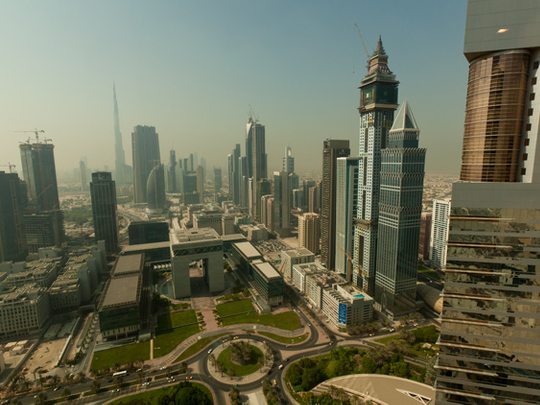
Dubai The UAE has ruled out changing the existing labour sponsorship system, which, according to a study, costs the country about Dh50 billion per annum to host 4 million foreign workers.
Saqr Gobash Saeed Gobash, Minister of Labour, said the sponsorship system will stay in the UAE. He said that he had not seen a country which did not have a sponsorship system for foreign workers.
He told a workshop held on Tuesday in Dubai that the government is open to improving systems and changing policies to boost the performance of the local economy.
"We looked around and found that no country in the world has no sponsorship for foreign citizens on its territories. The UAE is one of the countries that [applies] a sponsorship system," Gobash said.
"There might be some misuses here and there which we are open to looking at and correcting. The Ministry of Labour has been trying to improve the sponsorship system and will continue to do so whenever it sees benefits from modifying the rules."
Kuwait and Bahrain recently scrapped the traditional sponsorship system that allows the government to have great control over the movement of workers.
Annual cost of hiring
The average annual cost of hosting a worker is estimated at about Dh55,000, according to a paper presented at a workshop organised by the Ministry of Labour and the Dubai Economic Council.
The cost of a skilled worker is Dh144,000 and the cost of an unskilled worker is Dh33,000, said Dr Mouawiya Al Awad, Director of the Institute for Social and Economic Research at Zayed University.
The overall average annual administrative and recruitment costs per worker are estimated at Dh2,674. For skilled workers the cost is Dh3,404 while it is Dh2,296 for unskilled workers.
Wages and both cash and non-cash benefits are estimated at Dh41,000 per worker annually, he said.
Despite these costs, hiring foreign workers is an econ-omic advantage to private companies and the UAE economy when compared to the workers' productivity levels, the study revealed.
This suggests that competitiveness of the UAE economy may be "linked strongly" to using cheap and unskilled workers, he said.
Gobash said "the social cost could be even more, but the legitimate question here is: What are the bene-fits the country is getting from the current subsidies spent on foreign workers? Does the investment in subsidies pay off economically or socially at the end of the day? All of those questions have some validity and we need to answer them in a scientific manner."
The study found that the return on investment on foreign labourers is five times higher, making the hiring of foreign labourers an attactive option.












